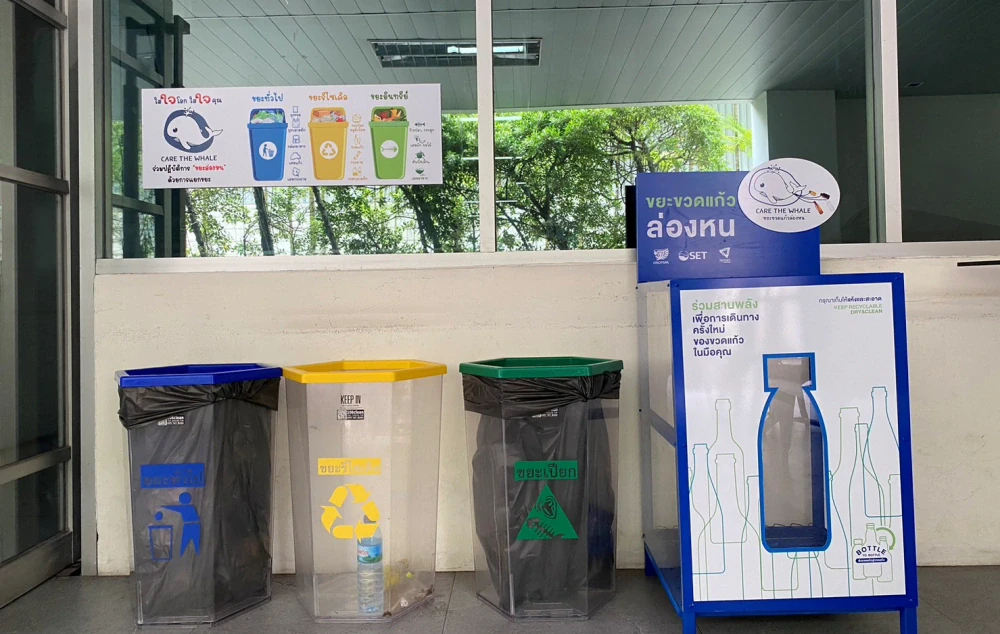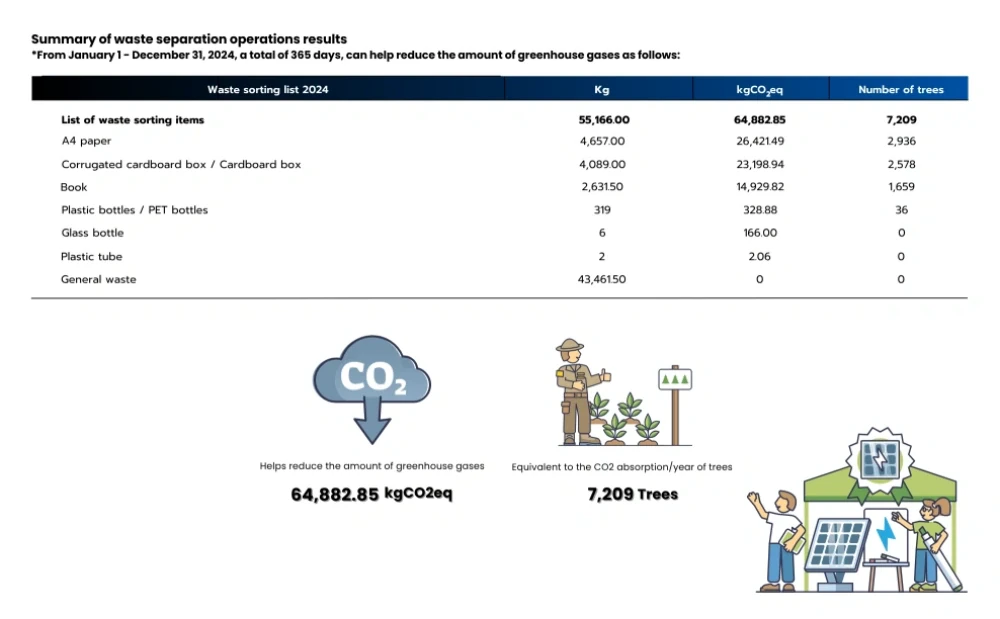JMT Joins the "Care the Whale" Project with the Stock Exchange of Thailand

Care the Whale “Invisible Waste” is a project that focuses on reducing greenhouse gas emissions through effective waste management using the concept of “Invisible Waste”, which aims to eliminate the word “waste” from our way of life by making the most of resources before things are considered waste. It also applies the principles of the Circular Economy to waste management to create a proper and sustainable management path, which is part of solving the waste problem that leads to global warming. Our company has continuously participated in the Care the Whale “Invisible Waste” project, which aims to jointly solve environmental problems through waste management, starting from sorting, collection, and properly disposing of waste. In addition, we also support behavioral adjustments in waste management of our personnel and communities to be correct and efficient in order to achieve the goals with our partner network in the Zero-waste to Landfill project, which aims to eliminate waste from landfills in the future.
In addition, the company plans to study the feasibility of expanding the installation of Solar Rooftop to other branches in the future to increase the efficiency of using clean energy and reduce the impact on the environment in the long term.
The investment in Solar Rooftop is another important step for JMT in driving the organization towards an environmentally friendly business, while also helping to reduce energy costs and contributing to the reduction of greenhouse gas emissions, which is in line with the company's sustainability goals and the development approach that is socially and environmentally responsible.
Guidelines for Project Participation
JMT has a clear direction to promote and develop waste management within office buildings by focusing on improving the waste sorting process from the beginning so that all types of waste are disposed of or recycled as much as possible in the correct and environmentally friendly way under the concept of “Invisible Waste” which aims to reduce the amount of waste to the least.
One of the important measures is to create awareness among employees about the importance of waste separation and to encourage all employees to have the correct knowledge and understanding of waste separation. The company has arranged a place for waste separation and clearly classified the types of bins at every necessary point in the office building to promote and support behavioral changes in waste disposal to be environmentally friendly.
JMT has set up a total of 6 waste sorting points to meet the demand, covering the areas of Office Buildings A, B and C. Every point has bins classified into 3 types:
- General waste: which is waste that cannot be recycled
- Recyclable waste: which is waste that can be reused, such as plastic, paper and glass
- Organic waste: which can naturally decompose and can be used to produce compost
This waste classification will facilitate employees to separate waste correctly from the beginning. Waste that has been separated can enter the recycling process or be disposed of according to type appropriately, efficiently, and environmentally friendly.


